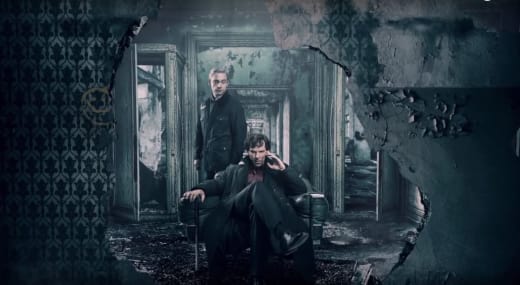

The episode by itself wasn’t nearly as high on deduction as Sherlock used to be, but there was a promise made in it. And if that’s what people wanted to see, they’d watch Mission Impossible or something like that.Ĭome episode two, ‘The Lying Detective’. You saw some small ray of hope in the form of Eurus Holmes (Sian Brooke), who’s revealed to be Sherlock’s sister. Giving Sherlock and John Watson (Martin Freeman) too much technology, money and governmental backing (in the form of Mycroft Holmes, played by Gatiss) to explain away the impossibilities is shoddy work. You need to explain in logical terms what happened. Sensationalism and shock-value is all very well, but it is Sherlock after all. The show began to rely less on plot and deduction, and more on drama. Suddenly it began to feel like Moffat and Gatiss were bored of their old plots and wanted to write something new, so a very flimsy, cursory connection was established that is nowhere near believable. With Moffat, it is usually worth the wait.Įnter season four with ‘The Six Thatchers’. He’s playing with you and will let the plot thicken before he tells you how he did it. If you’re familiar with Moffat’s methods, you know that you must be patient. I wasn’t as let down by season three though. For the amount of engagement that one cliff-hanger had generated, that it was not explained remains one of the greatest let-downs of the show.
#Review sherlock the final problem full
The internet went berserk for a full year as theory after theory surfaced in fandom, each more impossible and more ridiculous than the last. Sherlock’s resurrection was possibly the most crucial cliff-hanger the show has ever relied on, and goodness knows it relies on them a lot. It almost seemed like Moffat and Gatiss had gotten themselves entangled in their own plot, being patently unable to plausibly explain away Sherlock’s (Benedict Cumberbatch) death and resurrection. The sheer brilliance of it had taken nearly half the world’s breath away.īut as of season three, Sherlock’s plots were diluted, weak and no longer explained everything. His reputation for immaculate but impossible – yet believable – plots has been known since Matt Smith starred as the Eleventh Doctor in Doctor Who, which had few or no plot holes. This was what he had delivered with Sherlock in season one and two.

Moffat has always been one for grand reveals and he makes you work for that revelation in the end. Sherlock has been on a downward curve since season three, but Moffat loyalists like myself were willing to wait. Credit: Facebookįor the number of years that writers Steven Moffat and Mark Gatiss make the considerable Sherlock fandom wait, season four really should have held great pleasures. Sherlock season four was a massive disappointment.


 0 kommentar(er)
0 kommentar(er)
